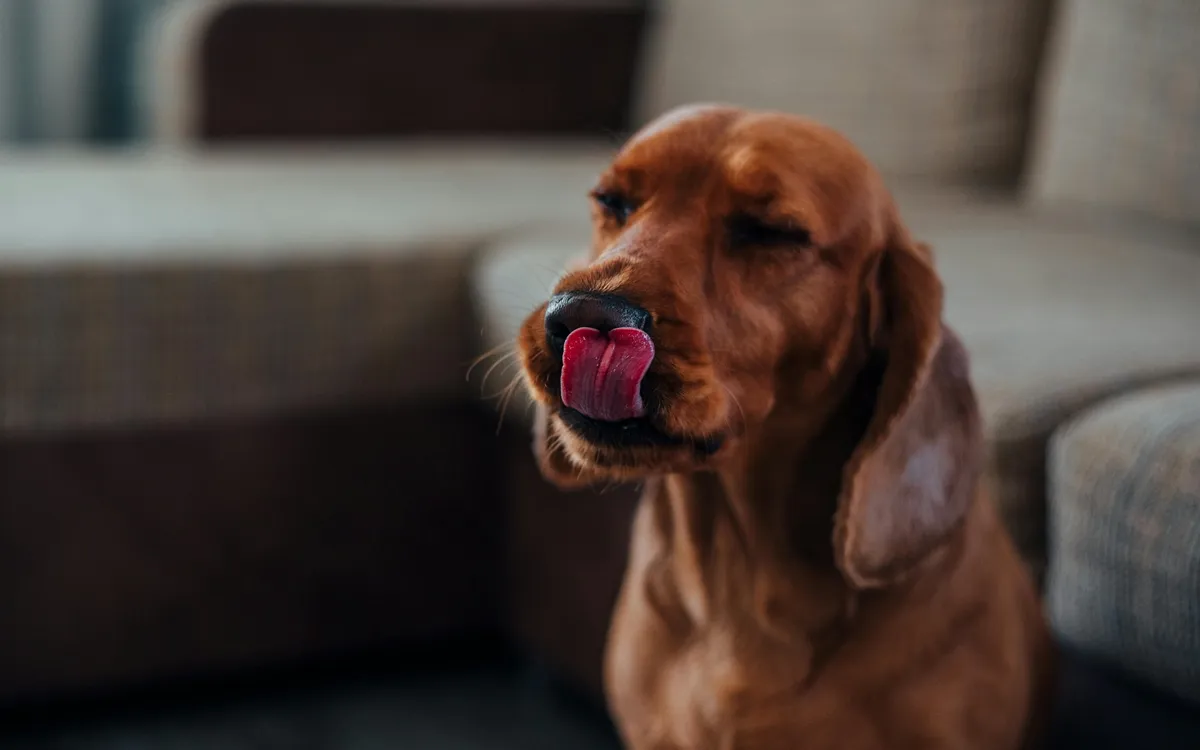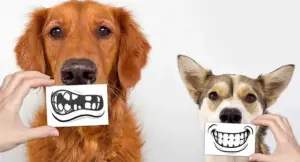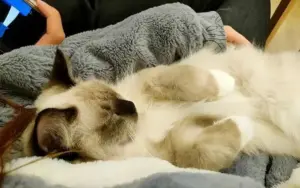Dogs have many quirky habits that might seem a bit gross, like turning around to lick their own butts.
This behavior is actually normal—they’re simply grooming themselves. Dogs don’t just lick their butts; they lick all over their bodies, though they don’t seem as fastidious as cats. (See dog licking feet)
Just like how we wash our hands and face, it’s normal for dogs to lick their butts a few times a day. However, if they do it excessively or nonstop, it’s not only unsightly but could also signal an underlying health issue.
Table of Contents
Why Do Dogs Lick Their Butts?
If your dog is frequently licking their butt, it’s likely due to inflammation or irritation around the anus. Common causes include the following four issues:
- Anal Gland Problems: Dogs have scent glands near their anus that can become blocked or infected, causing discomfort.
- Parasites: Worms or fleas around the rear end can trigger itching, prompting excessive licking.
- Skin Infections: Bacterial or fungal infections in the anal area may lead to irritation.
- Allergies: Food or environmental allergies can cause inflammation, making the area itchy.
Anal Gland Issues
Dogs have two symmetrical glands located on either side of the rectum, called anal glands. These glands secrete fluid that is expelled during defecation, serving as a lubricant. The fluid also carries a unique scent, acting as a biological „ID card“ for dogs to recognize each other.
However, when anal glands become overfilled due to soft stools, structural abnormalities, allergies, or other factors, the fluid fails to drain properly. This causes discomfort, prompting dogs to seek relief through external pressure—often seen as the classic „dog licking butt“ behavior.
What may look like a dog simply licking its rear could actually be an attempt to massage the anal area. Dogs might also scoot their bottoms across the floor. Both behaviors are red flags for anal gland issues.
In severe cases, the glands can become inflamed, swollen, or even rupture, causing significant pain. Persistent „dog licking butt“ or scooting should prompt immediate veterinary attention to address potential infections or blockages.
Intestinal Parasites
Dogs that aren’t regularly dewormed are prone to intestinal parasites like tapeworms, whipworms, and hookworms. These parasites live in the gut, irritating the digestive tract and causing issues like diarrhea, vomiting, and malnutrition.
Some parasites release eggs through the dog’s feces, which irritate the anal area. This discomfort often leads to dog licking butt to relieve the itch.
Skin Infections and Allergies
Allergies to environmental triggers can cause itchy, inflamed skin—including around the anus. Skin allergies may also trigger secondary infections, worsening inflammation. If a dog has allergies, frequent dog licking butt is likely.
Food Allergies
Food allergies can trigger a chain reaction during digestion, including anal itching. Persistent dog licking butt might signal a food allergy. Identifying and eliminating the specific allergen from the diet can resolve symptoms.
How to do if your dog licking butt excessively?
If you notice your dog licking its butt excessively, it could signal an underlying health issue. Persistent butt-licking often indicates discomfort around the anal area, and the cause should be addressed promptly.
- Anal Gland Issues
The most common culprit is impacted or infected anal glands. Dogs may need their anal glands manually expressed by a vet. If the gland fluid appears thick, discolored, or contains pus—or if your dog shows pain when touched near the anus—antibiotics may be required to treat an infection. - Dietary Adjustments
Adding fiber to your dog’s diet, such as pumpkin, can increase stool bulk. This helps naturally express the anal glands during bowel movements, reducing irritation. - Intestinal Parasites
Parasites like worms are easily diagnosed through a fecal exam and treated with deworming medication. Regular preventative deworming is key to avoiding this issue altogether. - Allergies
Environmental allergies often flare up seasonally, while food allergies can occur year-round. Sudden skin inflammation or infections may require medication, but diagnosing allergies can be tricky. Elimination trials (removing suspected allergens) are often necessary, though this process can take time.
Important Note
Excessive dog licking butt is rarely the only symptom. Watch for other signs like scooting, redness, swelling, or changes in appetite or behavior. If anything seems off, schedule a vet visit ASAP. Early intervention prevents minor issues from becoming serious problems.









Add comment